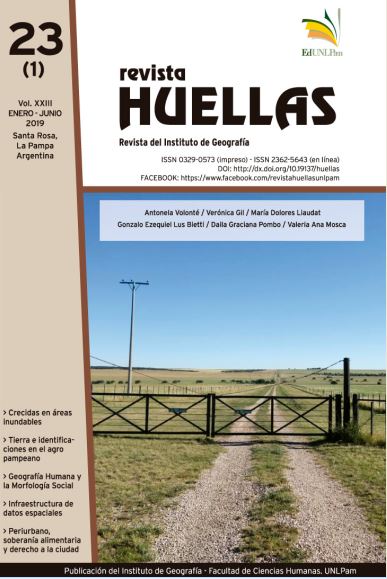The epistemological-institutional dispute between the Human Geography and the Social Morphology: continuities and discontinuities in the strategies of scientific legitimation of the communities of geographers and sociologists at the threshold of the twent
Keywords:
Epistemological-institutional dispute, strategies of scientific legitimation, scientific communitiesAbstract
On the verge of the twentieth century, the Human Geography of Paul Vidal de la Blache disputed the appropriation of the study of the relationship Society-Nature with the Social Morphology of Emile Durkheim. The background of this event was tainted by epistemological issues, with epicenter in the different conceptions of the environment, as well as by institutional issues, since Sociology intended to integrate within its domain the field of Human Geography. While Durkheim’s strategies had been to interpret and criticize Vidal’s Geography through Ratzel’s Geography, La Blache chose to move away from Ratzel’s Geography and thus differentiate himself from the Social Morphology. With the intervention of the disciples, these strategies not only continued, but they were also modified. Mauss and Halbwachs continued to undermine the epistemological-institutional space of Vidalian ́s Geography through the critique of Ratzel ́s Geography, but Simiand was a pioneer in criticizing the Vidalians directly. Demangeon and Vacher contributed to highlighting the singularity of Vidal de la Blache’s Geography, but Febvre and Vallaux outlined a defense of Human Geography through a critique of Social Morphology.
Downloads
References
- Antunes de Sousa, Willian M. (2015) “Camille Vallaux: Uma figura da Geografia Classica Francesa”. En Revista GEOgraphiaNro 35 pp.197-203.
- Berdoulay, Vincent (1995) [1981] “La formation de l’école française de géographie (1870-1914)”. C.T.H.S. Paris.
- Buttimer, Anne (1980) “Sociedad y Medio en la Tradición Geográfica Francesa”. Capítulos I, II III. Oikos-Tau. Barcelona.
- Demangeon, Albert (1913) L'Année Sociologique. Tome 12 (1909-1912). Morphologie Sociale. Sixième Section, pp. 814-818. Félix Alcan, Éditeurs, Paris.
- Febvre, Lucien (1949) [1922] “La Terre et l’évolution humaine: Introduction géographique à l’histoire”. Collection : L’évolution de l’humanité, synhtèse collective Albin Michel, Paris.
- Halbwachs, Maurice y Simiand, François (1910) L'Année Sociologique. Tome XI (1910). Morphologie Sociale. Sixième Section, pp. 720-732. Félix Alcan, Éditeurs, Paris.
- Halbwachs, Maurice (2001) [1938] Morphologie Sociale. Les classiques des sciences sociales. Bibliothèque Paul-Émile-Boulet de l'Université du Québec à Chicoutimi.
- Martínez Gutiérrez, Emilio (2016) “Morfología Social y demografía en Maurice Halbwachs”. En EMPIRIA Revista de Metodología de Ciencias Sociales. Nro 33, pp. 175-183.
- Mauss, Marcel y Beuchat, Henri (1906) “Essai Sur Les Variations Saisonnières Des Sociètes Eskimos - Étude de Morphologie Sociale”. L'Année Sociologique. Neuvième Année (1904-1905). Priemiere Partie- Mémoires Originaux, pp. 39-130. Félix Alcan, Éditeurs, Paris.
- Rhein, Catherine (1982) “La géographie, discipline scolaire et/ou science sociale?” (1860-1920). En Revue française de sociologie Nro23-2. pp. 223-251.
Ratzel, Friedrich (1990) [1891]. “Anthropogeographie”. En Moraes, A.C. “Ratzel”. Pp. 32-107. Atica. San Pablo.
Vacher, Antoine (1905) L'Année Sociologique. Deuxième Année (1903-1904). Morphologie Sociale. Huitième Section, pp. 613-615. Félix Alcan, Éditeurs, Paris.
Vallaux, Camille (1925) “Les Sciences Géográphiques”. Félix Alcan. Paris.






.png)












3.jpg)


